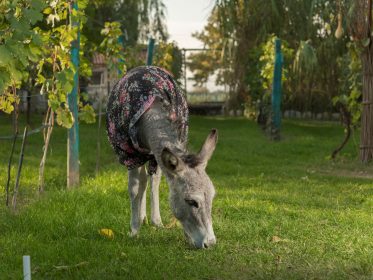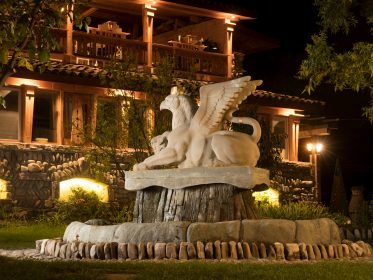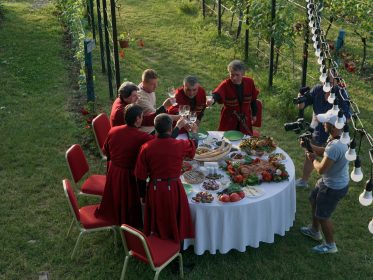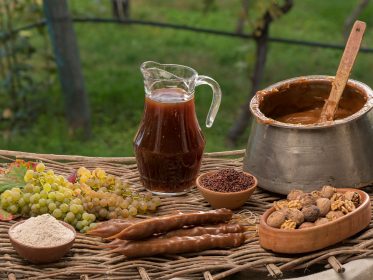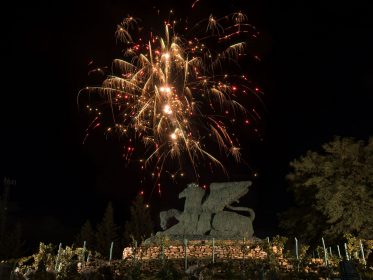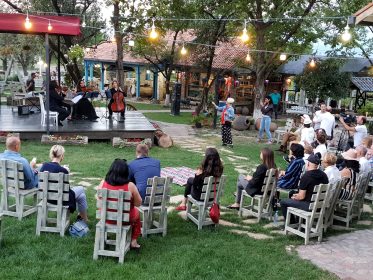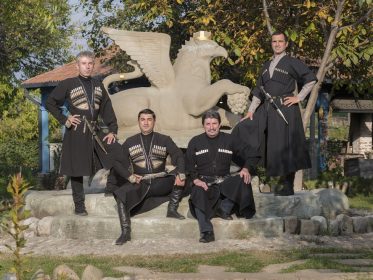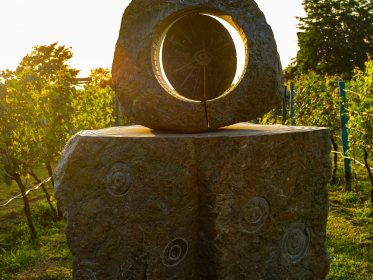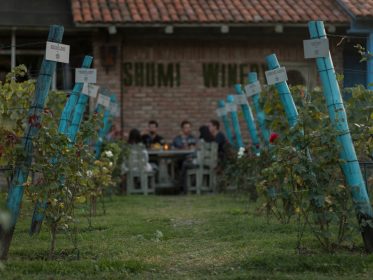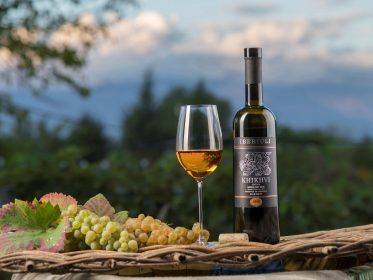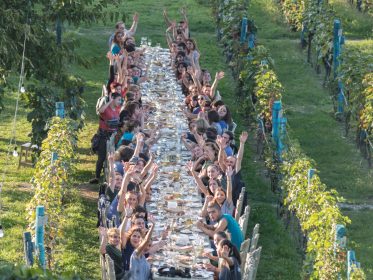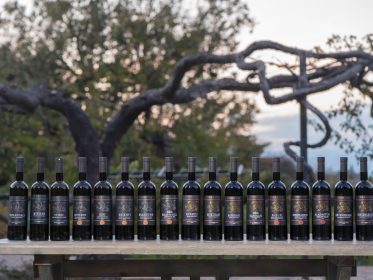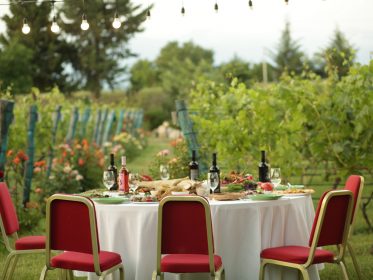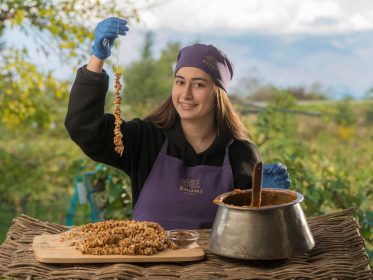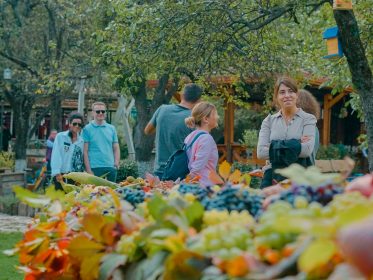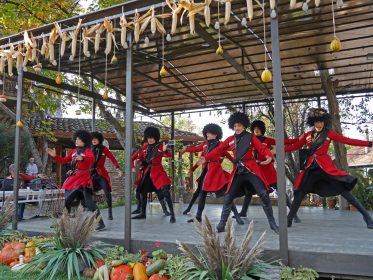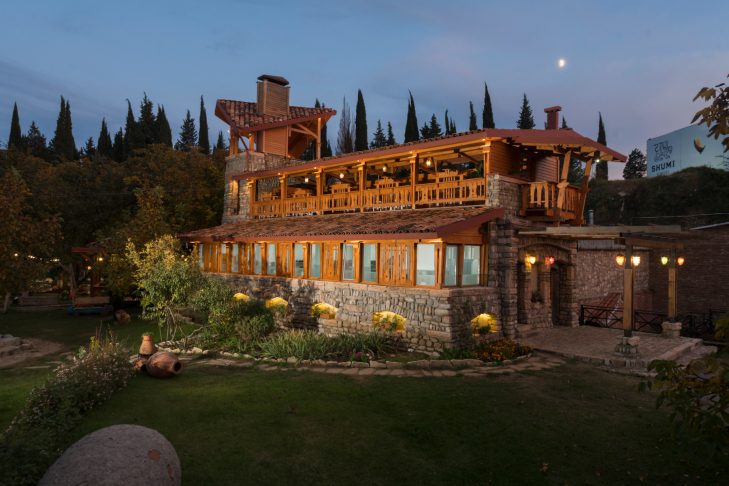The Shumi Winery: the wine was born in Georgia
Georgia is on the list of countries that are still being studied by world scientists. Most modern scholars hypothesize that the name is derived from the transliteration of the Persian word for wolf with the country’s name meaning land of the wolves Sakartvelo. The country’s native name means land of the Georgians (Kartvelians).
Georgians (Kartvelians) are the indigenous people of the region predominantly descended from those that have lived there since prehistoric times. More than 8000 years ago the fertile river valleys in this geographically isolated region provided a haven for growing a wide variety of crops including grapes, wine residue found on ancient Georgian pottery – Qvevri fragments is the earliest evidence of the delicious beverages found anywhere in the world. It was in 2017 that world science unanimously recognized Georgia as the birthplace of vines and wine. Moreover, before in 2013, UNESCO registered the Qvevri winemaking method on its List of the Intangible Cultural Heritage of Humanity. And then – more than 500 Georgian aboriginal grape varieties… This is the world from which the SHUMI comes.
“SHUMI” meant “the best wine” in ancient Georgian. It still means the same! According to the legends, the Griffin (“Phaskunji” in Georgian mythology) has brought the first bunch of grapes to people, which gave birth to the cultivation of the very first vineyards on Earth; and therefore, it became the symbolic figurehead of Shumi. A 1.5-hour drive from the capital, in the beautiful and historically famous part – Kakheti, the Shumi winery was founded in 1997. It borders the National Park-Museum of the Georgian princes Chavchavadze. You will find a place where four chains are represented in the same space: viticulture, winemaking, history and wine tourism, which allow the guest to travel and get acquainted with the historical past of viticulture and winemaking, as well as participate in all stages of winemaking.
The company offers guests original packages of vertical tasting, combining a wide range of popular white and red wines, exclusive lines of wines and spirits that have no analogues in the world, for example Qvevri ice wine and Qvevri sparkling wine.
In times of economic uncertainty, fluctuating currency exchange, increasing wine production and competition from new or established wine-producing regions, wineries must overcome many obstacles to produce, sell and ultimately benefit from wine production. The Shumi winery believes educating its visitors and other potential consumers is one among different key strategies wineries’ management could undertake to build relationships, brand loyalty, and maximize any opportunities for obtaining benefits, including from wine tourism. In the field of world winemaking and tourism, a new commandment has appeared – enotourism, which today is one of the most important areas of both wine production and tourism sectors.
From the very beginning of its existence, Shumi Winery has sought to educate young people and raise awareness. Therefore, in addition to commercial activities, it began charitable activities – helping younger generations of farmers and other interested people in the region and beyond to get an education. To this end, the idea of creating a school arose and on the base of the SHUMI, the Shumi Wine School was established. Today, the school has a 5-year history and offers students an educational program aimed at comprehensive study.
The aim of the program is to study, based on international rules and guidelines for viticulture and oenology in the world, the peculiarities of the processing of grapes, modern innovative and traditional technologies for the production of wine and other alcoholic beverages of grape origin, trends in the field of vinification, sensory assessment based on international rules and practically established systems, wine diseases, the reasons for their occurrence and methods of their prevention; current trends in the global wine tourism market, planning and development of tourism products, including “wine routes”, and their promotion, taking into account global trends. The curriculum is complex and includes both practical and theoretical parts.
The educational program strengthens the material and technical base of the company, where trainees undergo practice. The school did not forget its students even during the pandemic and carried out various educational and encouraging activities.
